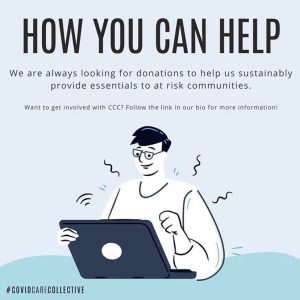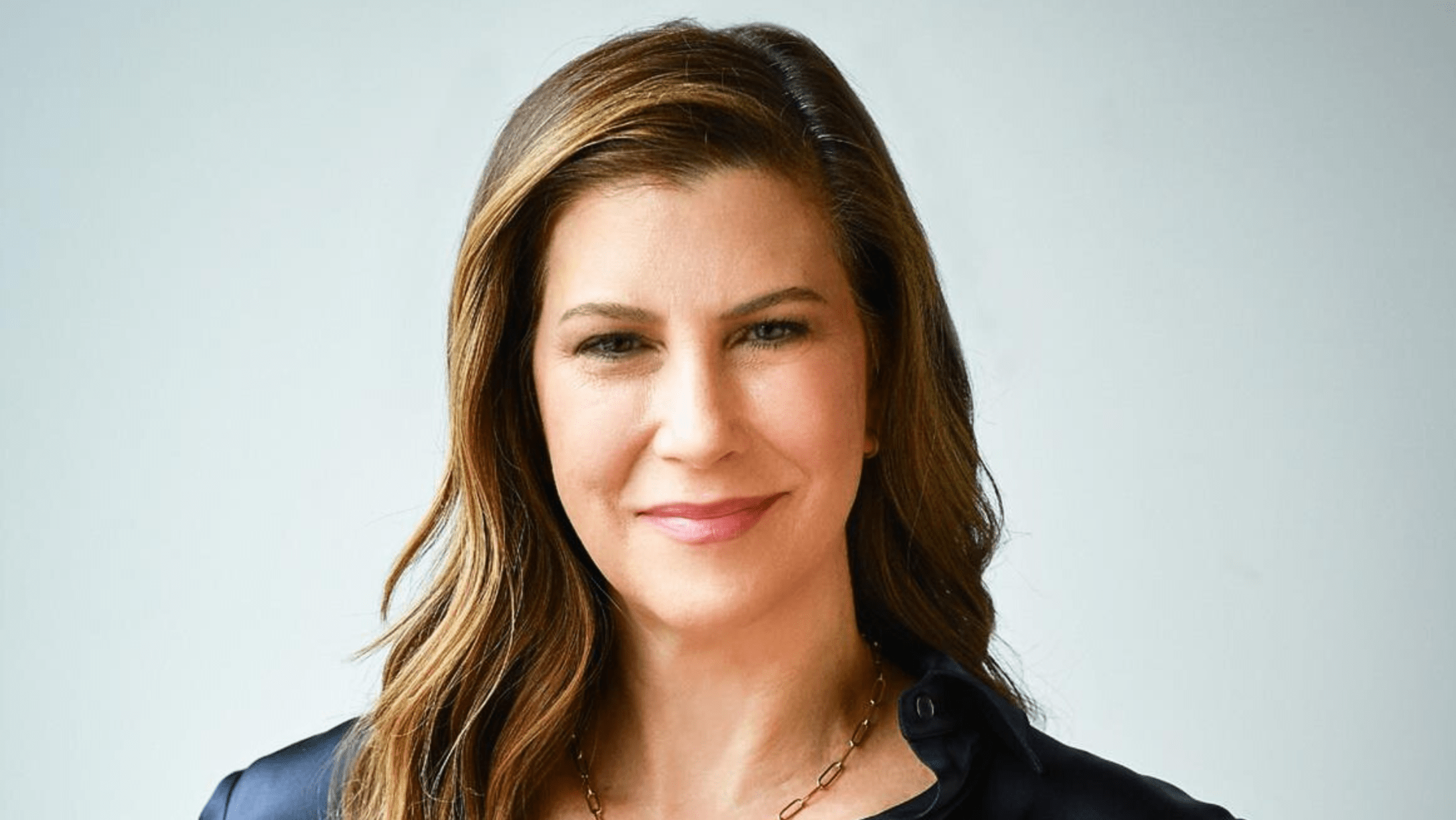[vc_row][vc_column][vc_column_text]Jenna Tabatznik is used to witnessing the effects of injustice. Born to two South African parents who had lived through the vicious realities of apartheid, Tabatznik has always had social activism in her blood. Her example, and father, a human rights activist, was jailed twice fighting for black civil rights and equality.
“I was taught to question systems of injustice and to be heedful of those who fall victim to these systems, whether political or economic,” says Tabatznik, “I was always encouraged to fight for what I believed in and I was empowered to believe that I could do something about it.”
Established in early March, before the release of aid programs like CERB and CESB, the Covid Care Collective began to give basic essentials to families and individuals in critical need. “The founders of Covid Care Collective responded to this crisis by sponsoring the grocery orders of people in their community. Shortly afterwards, hundreds of vulnerable households reached out asking for additional financial support,” says Tabatznik. With no signs of demand decreasing, the collective has since grown into a functioning volunteer organization putting food onto the tables of Toronto’s most at-risk families. [/vc_column_text][vc_column_text]An ode to her upbringing, Tabatznik says being involved in a collective dedicated to providing care to those who have fallen between the cracks of government aid, just made sense. 

“As other COVID-19 relief initiatives in the city emerged, we realized that the best way to add value, and distinguish ourselves, was to give the vulnerable household the ability to tailor their grocery order so that they could obtain the essential items they truly needed,” says Tabatznik.
The collective’s services fill in where food banks and other social programs are unable to so that dietary, religious and other needs can be met without substitution. For those with mobility limitations or without access to safe transportation, Covid Care Collective has created a drop off service in which volunteers stationed around the city pick up and deliver orders to families. As a result, Tabatznik says, vulnerable households have the freedom to customize to their needs while being about to protect themselves from risking their wellbeing in stores. [/vc_column_text][vc_column_text]As for the why, Tabatznik says it’s less of a question of why and more of a question of why not. As young able bodied low risk individuals, she feels to not exhaust all efforts to do her part would be unimaginable.
“We are simply a collective of caring individuals who refuse to sit idly by while people in our community are suffering,” says Tabatznik, “There are vulnerable groups among us whose basic needs are not being met by government aid programs and who are feeling helpless. We want to support them through this difficult time, show them that we care, and that their needs matter.”
For this week’s start-up spotlight we spoke with Jenna Tabatznik about making a difference simply because it is the right thing to do. [/vc_column_text][vc_text_separator title=”Q & A ” color=”black”][vc_column_text]Personally what experiences in your life inspired you to create this initiative?
I was 11 years old when I visited South Africa. The forced segregation and degradation of the apartheid system was being abolished when I was born, but its legacy was still obvious and the appalling inequalities that it engendered were still evident. I was of an age when my ideas about the world were still forming and what I saw never left me. This experience motivated me to pursue a career in human rights, and through my past work with human rights organizations, I’ve become particularly sensitive to intersectionality. Specifically understanding the way that the different identities one holds can have mounting consequences that can make them particularly disadvantaged. Taking an intersectional approach with Covid Care Collective, pushed us to think about how particular communities have been impacted by this crisis, and to implement systems that remove barriers that would prevent the most vulnerable populations in Toronto from accessing our services
As a leader, what questions did you ask yourself before building the collective? What gap in the market did you feel needed to be filled?
Before building the collective, we had to think about what unique value we could add to existing Covid relief efforts, and this continues to be something we reevaluate every few weeks. Given the constantly changing political, social, and economic landscape, it’s important to be responsive and willing to adapt. The gap we identified reflects a lack of mobility and all those being overlooked by government aid programs, the vulnerable households that fall through the cracks.
What is your goal for Covid Care Collective? Families in Toronto have been struggling to make ends meet since before the pandemic, with that in mind do you want to continue it past the pandemic? 

Our immediate goal is to provide support to those in need as a result of this pandemic. However, we recognize that a lack of access to essential services is a large issue that existed prior to COVID-19, and will persist after it has been eradicated. As we have invested a significant amount of time and effort into creating a platform that connects those in need with those willing to provide help, we hope that our services will continue to be available past the end of this pandemic.
It was recently announced that the CERB emergency funding will be available until August, how is Covid Care Collective working to continue to fill the gaps until this time?
While CERB has provided relief to many individuals and families across Canada, there are still those who are ineligible and fall through the cracks. For as long as the government fails to support them, we will strive to be relevant.
What is the funding model for Covid Care Collective, and how can other people get involved?
Our initiative is entirely dependent on donations from the public. We are immensely grateful for the support we’ve received thus far. We encourage people to give what they can as no donation is too small! Every penny truly makes a difference. Please consider making a donation via our GoFundMe page to support those in need.
What do you think is most essential to consider when creating initiatives around the pandemic?
Communication with other initiatives! It is imperative to learn from each other’s experiences and support those with a common goal. It is only through teamwork and shared resources that we can make the world a better place.
It is also crucial to figure out how long you plan on being around. This will influence what kind of service you can provide, what fundraising efforts to pursue, and what legal organization makes the most sense for your initiative. If this is something short-lived, be mindful of your exit strategy and where your recipients will be left when your initiative disappears.
How would you encourage other young adults to get involved and do their part?
We want Covid Care Collective volunteers to feel like this is their initiative as much as it is ours. We encourage people to join our network to help us fundraise so we can carry on doing this work sustainably and to shop and deliver on behalf of our recipients when needed. If you are interested in becoming a volunteer shopper, you can apply HERE. Once you’re approved onto our network, you can match with a recipient, find out what they need, and fulfil their order. For ease of operations, we request that our volunteer shoppers are able to front the cost of the order (up to $100). Once the delivery has been completed, we reimburse for the costs of the purchases. [/vc_column_text][/vc_column][/vc_row]













